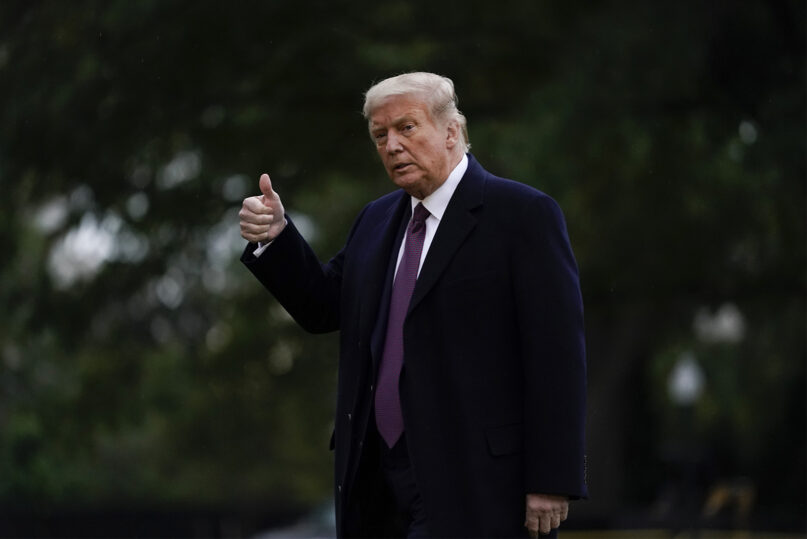(RNS) — After President Trump was taken to the hospital Friday (Oct. 2), my wife asked me what I thought the chances were that he would change his approach to COVID-19. Would he unambiguously tell people to wear masks and social distance in public, dial back his push for schools and businesses to open, even acknowledge that he may have done too little to combat the disease?
“One in ten,” I said.
Then, Saturday evening, a pallid and subdued Trump spoke up on video from the basement of Walter Reed, praising his doctors, expressing his appreciation for the support of the American people “almost by a bipartisan consensus,” thanking world leaders for their “condolences.” Rarely has this president appeared so human.
It brought to mind Jonah, that most narcissistic of prophets, praying to God from the belly of the great fish. People who are consumed by “lying vanities” forget the mercy that’s been given them, Jonah says, but not me. I’ll keep my vow, sacrifice to you, give thanks.
RELATED: Did RBG beat Trump in cosmic court?
God has the fish vomit him out, and again orders him to go to Nineveh and announce its destruction. This time he does as he’s told, and lo and behold, the whole city repents, averting the evil decree.
But Jonah is not happy. It’s precisely because you’re so merciful that I fled from the mission the first time around, he tells God. Kill me now.
So God teaches Jonah a lesson about mercy, one that gets to the heart of his self-regard. When he builds himself a hut to see what will become of the city, God prepares a plant to give him some much appreciated shade — then has the plant killed off and bakes him in the hot sun. Again, Jonah asks to die. The book ends with a rhetorical question from God:
Thou hast had pity on the gourd, for the which thou hast not laboured, neither madest it grow; which came up in a night, and perished in a night: And should not I spare Nineveh, that great city, wherein are more than sixscore thousand persons that cannot discern between their right hand and their left hand; and also much cattle?
Whether or not Jonah takes the lesson to heart, the message is clear enough. Fear of imminent death tends to bring out the piety in us. But what happens once the danger is past?
A few will mend our ways. Many more will revert to our lying vanities.






